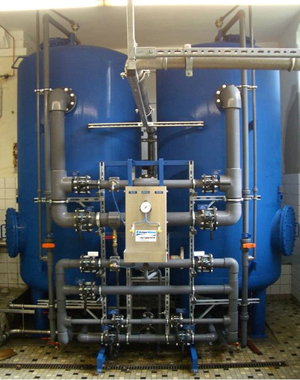New process removes uranium from drinking water
The water treatment company Elga Berkefeld, a subsidiary of Veolia Water Solutions & Technologies, has developed a process for removing uranium from drinking water. It was firstly presented at the BRAU Beviale European trade fair for the beverages industry. Elga Berkefelds sister-company, Krüger WABAG, developed together with the Karlsruhe Research Centre and ATC Dr. Mann e. K., Obrigheim, a process which re-moves the heavy metal highly selectively. The core component of the system, which is marketed under the name Uranex®, is a filter with a highly-effective synthetic adsorp-tion material through which the water flows. This process was adapted by Elga Berke-feld to meet the special needs of beverage production.
"The system has proved to be highly efficient in our field tests," says Bernd Hackmann, Business Unit Manager Beverage at Elga Berkefeld. "The composition of the water otherwise remains completely unchanged." The system, which is the first process for removing uranium to be approved by the Umweltbundesamt (German Federal Environment Agency/FEA), was successfully tested in various applications in the treat-ment of drinking and beverage water. It can be combined with all common water treatment processes and is in connection with other adsorption materials also suitable for removing other heavy metals such as arsenic and nickel.
Media reports last year pointed out that traces of uranium had been found in both tap and mineral water. This substance occurs in various chemical compounds and is mostly geologically-related in wells and surface waters. The WHO recommends that a value of 15 μg/l should not be exceeded. The FEA has to date prescribed a "healthy admissible concentration" of 10 μg/l and a so-called "action value" of 20 μg/l, which depending on the level of the uranium pollution is to be achieved only by suitable water treatment. With regard to beverage water, in Germany natural mineral water and table water used for baby food should not exceed a value of 2 μg/l.

